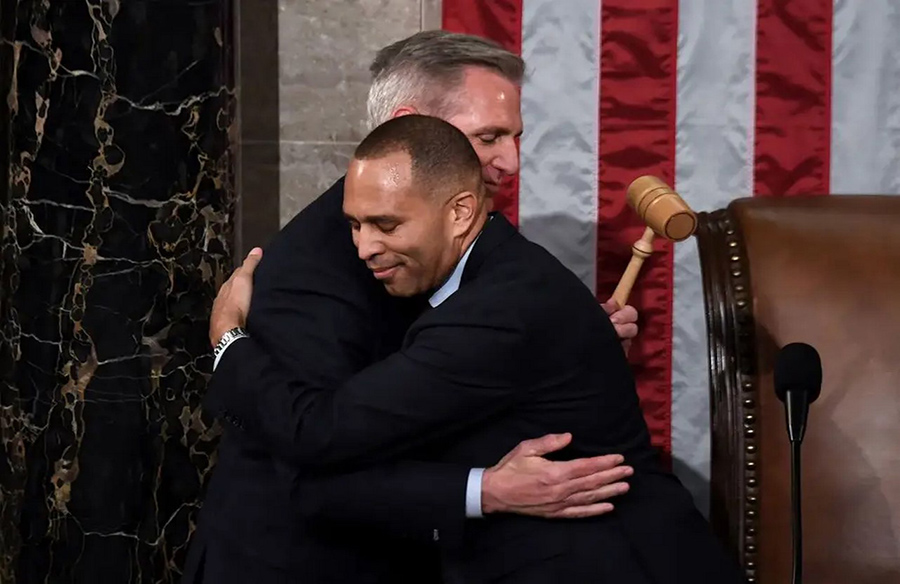As the 2024 presidential election looms closer, a significant portion of young adults express reluctance to befriend individuals supporting the presidential candidate from the opposing political party.
Poll Findings
A poll conducted by The Generation Lab and Axios surveyed 1,073 young adults between February 3 and 14. The results revealed that 33% of respondents indicated they would “definitely not” or “probably not” be open to befriending someone who voted for the opposing party’s presidential nominee, specifically mentioning Republican former President Donald Trump or Democratic current President Joe Biden.
Comparison to Previous Elections
This survey echoes findings from a Monmouth University poll conducted approximately seven years ago, following the contentious race between Trump and Democratic candidate Hillary Clinton. The Monmouth University poll discovered that 7% of voters had terminated friendships due to the divisive nature of the campaign, with 70% of respondents stating that the presidential race “brought out the worst in people.”
Persistent Political Polarization
The observed rise in political polarization is not a recent phenomenon. Researchers have documented the country’s escalating polarization for decades. A survey in 2022 even revealed that 43% of US adult respondents anticipated the possibility of a civil war erupting within the next decade. It’s noteworthy that the United States experienced an actual civil war in the 1860s, dividing the nation’s northern and southern regions.
Current Political Landscape
While the presidential primary season is ongoing, both Biden and Trump maintain substantial leads in their respective party’s race. Trump’s campaign has even suggested that he could secure the nomination as early as mid-March. Recent national polling conducted by Morning Consult indicates that Biden’s support among registered voters is nearly equivalent to Trump’s. However, independent-leaning voters seem to lean more towards the Republican side. Nonetheless, the outcome of presidential elections is determined by the electoral college votes of each state, not the popular vote. Consequently, a handful of swing states with small voter margins could potentially play a decisive role in November’s election.
In summary, the poll underscores the deepening political divide among young adults and its implications for social relationships in an increasingly polarized society.




Leave a Reply